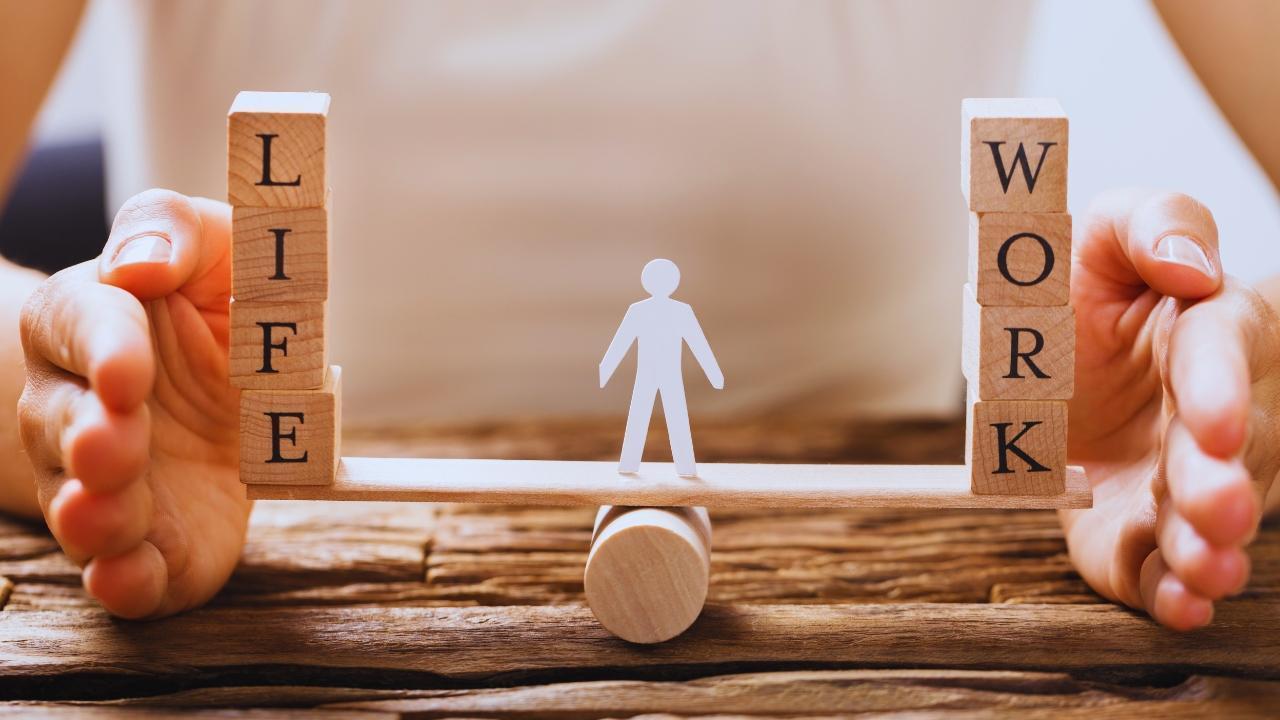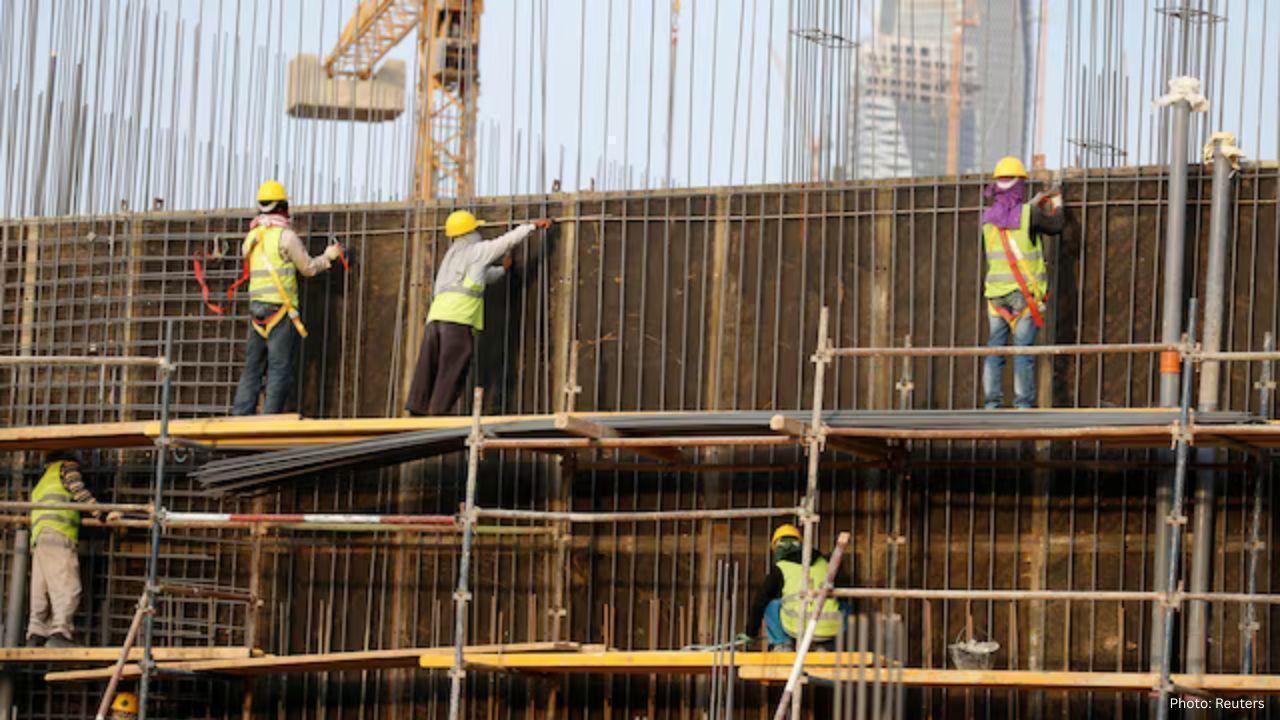You have not yet added any article to your bookmarks!

Join 10k+ people to get notified about new posts, news and tips.
Do not worry we don't spam!

Post by : Anis Farhan
Balancing work and personal life is not a new concern, but in today’s fast-paced, digitally connected world, the struggle has become more pronounced than ever. People are working longer hours, often extending their professional commitments into evenings and weekends. At the same time, families, friendships, hobbies, and health demand attention. The result is a constant push and pull that leaves many feeling stretched thin, fatigued, and dissatisfied. Work-life balance has shifted from being a personal choice to a global challenge, one that impacts productivity, mental well-being, and even national economies.
Over the last few decades, the nature of work has changed dramatically. Technology has blurred the boundaries between office and home. Remote work, while providing flexibility, has also introduced an “always available” culture, where emails and calls continue beyond working hours. Global competition means businesses expect faster turnarounds and employees are pressured to deliver more in less time. The traditional nine-to-five schedule has been replaced with irregular shifts, freelancing, and gig-based roles, each bringing its own set of pressures.
The inability to balance professional and personal commitments often leads to burnout. Symptoms such as fatigue, loss of motivation, irritability, and declining productivity are becoming increasingly common. Burnout not only affects individuals but also organizations, resulting in high turnover rates, reduced innovation, and mounting healthcare costs. Governments and corporations alike are beginning to recognize burnout as a public health concern, emphasizing the urgent need for policies that protect workers’ mental health and well-being.
Work-life balance is viewed differently around the world. In some cultures, long working hours are considered a badge of honor, while in others, personal time is seen as equally valuable as professional contribution. For instance, many Scandinavian countries prioritize shorter workdays and emphasize family time, whereas in parts of Asia, long hours are often tied to cultural values of dedication and discipline. These variations highlight how balance is shaped not just by economics but also by societal norms and expectations.
The struggle to find equilibrium extends into family life. Parents often find themselves caught between career growth and parenting responsibilities, while partners may feel neglected due to excessive professional commitments. Children, too, are affected, as they may grow up with limited parental interaction. Strong relationships require time and attention, and without balance, both personal and professional spheres suffer.
Technology has been a double-edged sword in the quest for work-life balance. On one hand, it enables remote work, saving commuting time and offering flexibility. On the other, it ensures employees remain connected to their jobs around the clock. Social media, too, plays a role, often amplifying stress by creating a culture of constant comparison. The challenge lies in using technology to enhance life rather than allowing it to control every moment.
Employers play a critical role in fostering balance. Forward-thinking organizations are adopting flexible schedules, wellness programs, and mental health support to help employees thrive both at work and home. By encouraging vacation time and discouraging after-hours communication, companies can cultivate a healthier, more motivated workforce. The investment in employee well-being often translates into higher productivity, lower absenteeism, and stronger organizational loyalty.
While policies and workplace support are crucial, individuals also bear responsibility for setting boundaries and managing priorities. Learning to say no, delegating tasks, and dedicating time to rest and hobbies are vital practices. Mindfulness, exercise, and social interactions can help reduce stress and create a sense of fulfillment. Ultimately, work-life balance is not about dividing hours equally but about ensuring both areas receive meaningful attention.
The global struggle for work-life balance will not disappear overnight. It requires a collective effort—governments creating labor-friendly laws, organizations designing healthier work cultures, and individuals taking charge of their personal boundaries. The pandemic has shown the world that traditional work models can be reimagined, opening the door to more sustainable and humane approaches. Striking the right balance is less about perfection and more about adaptability, ensuring people can thrive in both professional and personal spheres.
This article is for informational and editorial purposes only. It does not provide professional medical, legal, or workplace advice. Readers are encouraged to consider their individual circumstances and consult relevant experts when needed.










Two Telangana Women Die in California Road Accident, Families Seek Help
Two Telangana women pursuing Master's in the US died in a tragic California crash. Families urge gov

Ranveer Singh’s Dhurandhar Roars Past ₹1100 Cr Worldwide
Ranveer Singh’s Dhurandhar stays unstoppable in week four, crossing ₹1100 crore globally and overtak

Asian Stocks Surge as Dollar Dips, Silver Hits $80 Amid Rate Cut Hopes
Asian markets rally to six-week highs while silver breaks $80, driven by Federal Reserve rate cut ex

Balendra Shah Joins Rastriya Swatantra Party Ahead of Nepal Polls
Kathmandu Mayor Balendra Shah allies with Rastriya Swatantra Party, led by Rabi Lamichhane, to chall

Australia launches review of law enforcement after Bondi shooting
Australia begins an independent review of law enforcement actions and laws after the Bondi mass shoo

Akshaye Khanna exits Drishyam 3; Jaideep Ahlawat steps in fast
Producer confirms Jaideep Ahlawat replaces Akshaye Khanna in Drishyam 3 after actor’s sudden exit ov